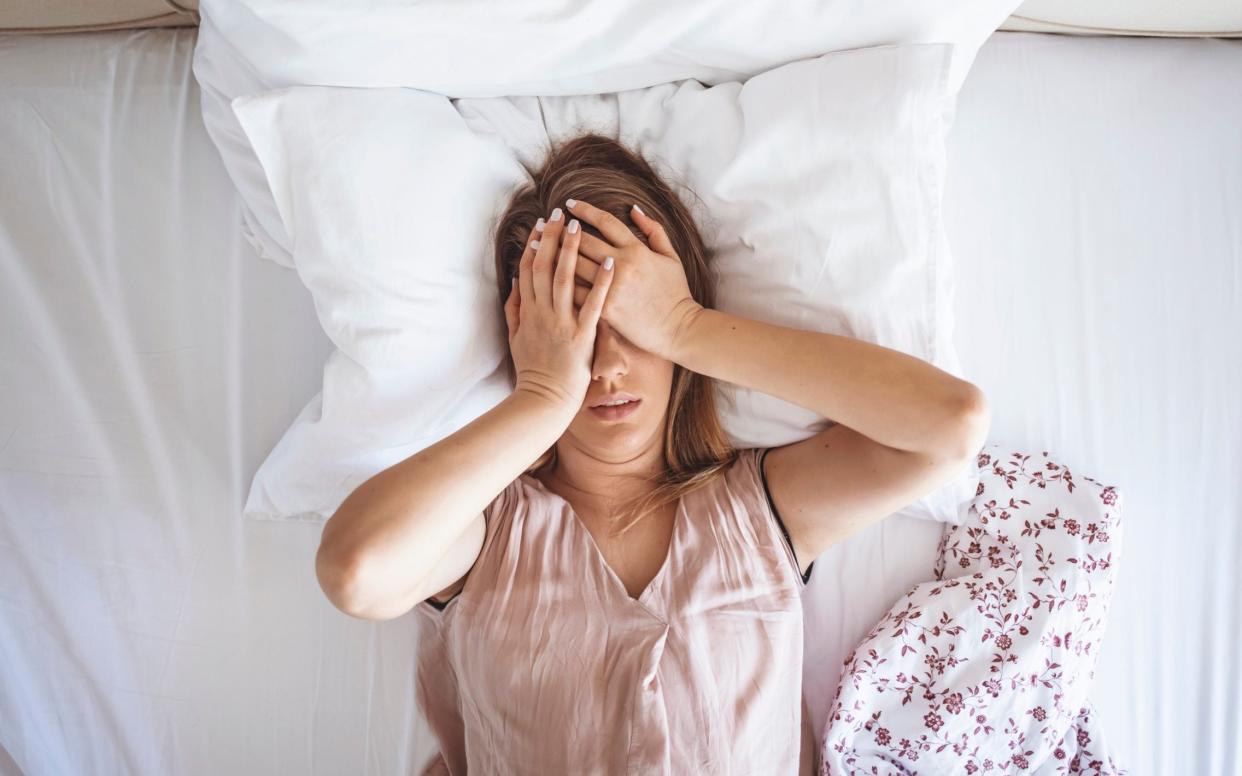Trouble sleeping? Doctors will prescribe an app now instead of pills

Insomnia sufferers will be prescribed apps instead of sleeping pills under new NHS guidance.
Up to 800,000 people who would normally be offered medication could be offered a six-week programme which aims to restore normal sleeping patterns.
The National Institute for Health and Care Excellence (Nice) made the recommendation after examining trials which found the app, called Sleepio, was more effective than pills or methods which promote “sleep hygiene”.
One trial found those following the programme got an extra six hours’ sleep weekly, with more than half of those using the app seeing improvements.
Its experts said the recommendation could save the NHS money, and reduce the use of medicines such as zolpidem and zopiclone that can be dependency forming.
Around one in three people will suffer from insomnia at some point in their life.
Nice said that the app was recommended for up to 800,000 people who have seen their GP about the problem, who would often be prescribed pills.
Doctors and patients will be able to decide between them on the most appropriate treatment, Nice said, with sleeping pills still remaining an option.
Economic analysis found that healthcare costs were lower at one year when using Sleepio, mostly because of fewer GP appointments and sleeping pills prescribed.
The app uses an artificial intelligence algorithm to provide tailored digital cognitive behavioural therapy over six weeks.
Users are asked to keep a diary about their sleep patterns, and take part in weekly interactive online therapy sessions which focus on identifying thoughts, feelings and behaviours that contribute to the symptoms of insomnia.
Users can fill in the diary manually or the data can be automatically uploaded from a compatible wearable tracking device, such as an Apple Watch or Fitbit.
The recommendation from Nice means GPs will be asked to prescribe the programme free to patients suffering from insomnia, at an NHS cost of £45 per head.
Clinical evidence presented to Nice’s medical technologies advisory committee from 12 randomised controlled trials found the programme was more effective at reducing insomnia than sleep hygiene and sleeping pills.
One trial of more than 7,000 people found it helped 56 per cent of users suffering from insomnia.
On average, those taking part in the trial gained almost six more hours of sleep a week, with average hours rising from 35.3 hours to 41.2 hours.
Cost-saving for the NHS
Jeanette Kusel, the acting director for medtech and digital at Nice, said: “Until now, people with insomnia have been offered sleeping pills and taught about sleep hygiene, so our committee’s recommendation of Sleepio provides GPs and their patients with a new treatment option.
“Our rigorous, transparent and evidence-based analysis has found that Sleepio is cost-saving for the NHS compared with usual treatments in primary care. It will also reduce people with insomnia’s reliance on dependence-forming drugs such as zolpidem and zopiclone.
“This is a good example of where digital health technology can help the NHS. The evidence has shown using Sleepio reduces the number of GP appointments people with insomnia need and will also cut the number of prescriptions for sleeping pills delivered by pharmacists.”

 Yahoo News
Yahoo News 
